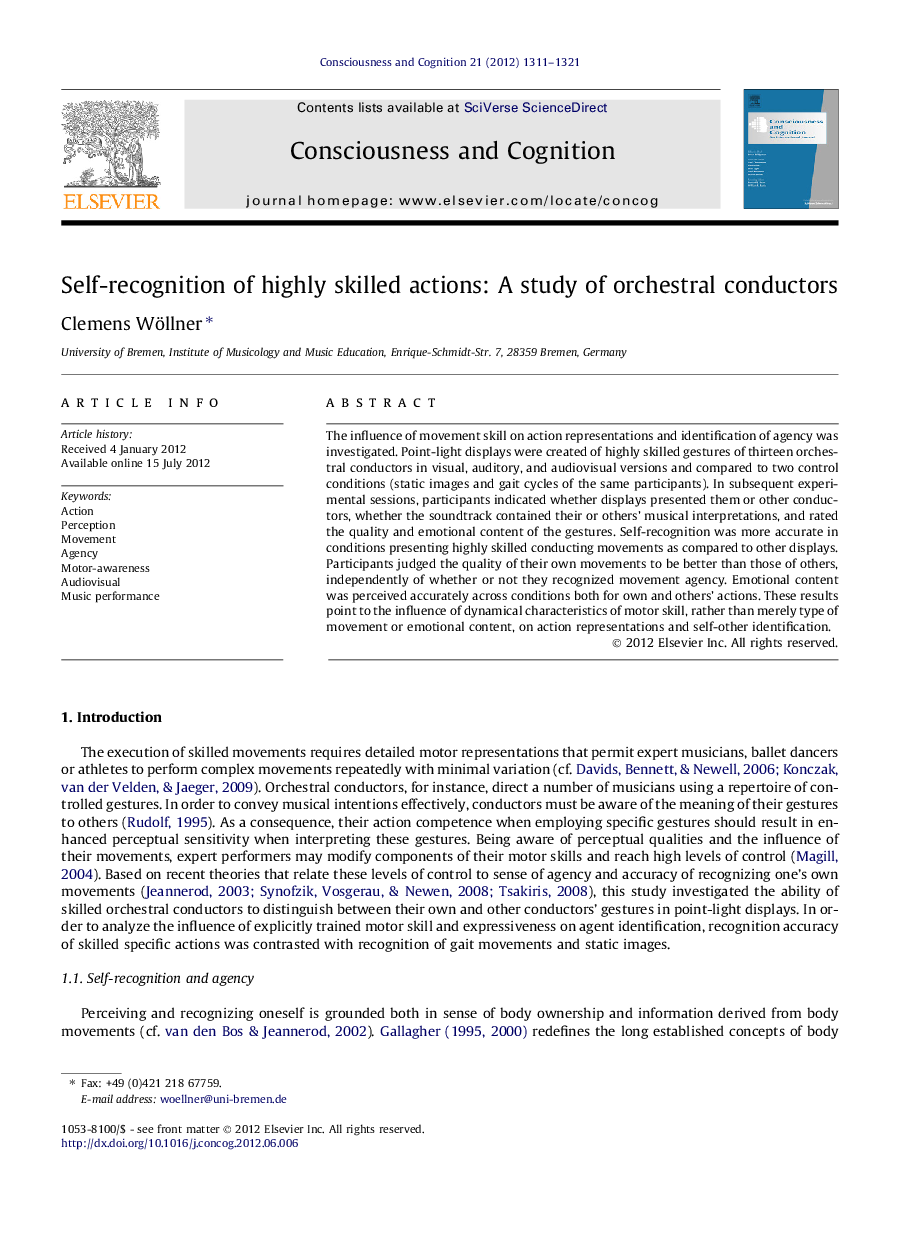| Article ID | Journal | Published Year | Pages | File Type |
|---|---|---|---|---|
| 927620 | Consciousness and Cognition | 2012 | 11 Pages |
The influence of movement skill on action representations and identification of agency was investigated. Point-light displays were created of highly skilled gestures of thirteen orchestral conductors in visual, auditory, and audiovisual versions and compared to two control conditions (static images and gait cycles of the same participants). In subsequent experimental sessions, participants indicated whether displays presented them or other conductors, whether the soundtrack contained their or others’ musical interpretations, and rated the quality and emotional content of the gestures. Self-recognition was more accurate in conditions presenting highly skilled conducting movements as compared to other displays. Participants judged the quality of their own movements to be better than those of others, independently of whether or not they recognized movement agency. Emotional content was perceived accurately across conditions both for own and others’ actions. These results point to the influence of dynamical characteristics of motor skill, rather than merely type of movement or emotional content, on action representations and self-other identification.
► Movement skill facilitates awareness of agency in motor tasks. ► Precise motor representations and individual expressiveness permit accurate self-recognition of actions in point-light displays. ► Displays of own actions are judged higher in quality, even when participants are not aware of agency. ► Auditory cues increase perceptions of the emotional character in relation to actions.
